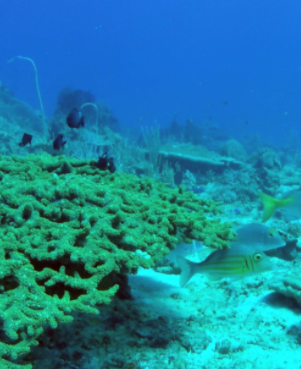Funds boost ocean view
 The Sydney Institute of Marine Science (SIMS) is set to significantly expand its pioneering ocean observing program.
The Sydney Institute of Marine Science (SIMS) is set to significantly expand its pioneering ocean observing program.
The initiative aims to enhance efforts in monitoring threatened marine species, improving coastal observations, developing oceanographic models, and implementing precise water quality monitoring methods.
The expansion will bolster the New South Wales Node of the Integrated Marine Observing System (NSW-IMOS), based at SIMS.
This development is expected to advance Australia's ocean monitoring capabilities, addressing critical data gaps and contributing to the sustainable management of Australia's marine estate.
Building on over 15 years of data collection, NSW-IMOS aims to inform planning and decision-making regarding the NSW marine environment's response to climate change.
Supported by key partners, including the NSW Department of Primary Industries (DPI) Fisheries, the NSW Department of Climate Change, Energy, the Environment and Water (DCCEEW), and university partners such as the University of New South Wales, the University of Sydney, the University of Technology Sydney, and Macquarie University, this program represents a substantial co-investment effort.
“These new coastal observations will generate important information needed by the agrifood, energy, transport, tourism, infrastructure and other sectors, and build pathways to employment for STEM professionals,” says Professor Martina Doblin, Director and CEO of SIMS.
Currently, there are limited observations in NSW coastal waters, particularly within three nautical miles from shore. This limitation results in significant uncertainty regarding the impacts of large storm events and flooding on water quality.
Additionally, ocean conditions are crucial for many commercially fished species, and the development of oceanographic models is essential for the adaptive management of fisheries amid environmental changes.
Research into the movements of marine species, such as sea turtles in warming ocean waters, is also critical.
This research not only measures the impacts of climate change but also aids in developing forecasting models for tropical cyclones and East Coast Low formation, improving safety and hazard reduction planning for coastal assets and communities.
The expanded program, supported by a $1.93 million grant from the State Government's National Collaborative Research Infrastructure Strategy (NCRIS) Support Program, will enhance SIMS's ability to deliver critical data for climate adaptation pathways.
This will provide comprehensive insights to inform ecosystem health, maritime safety, and broader planning efforts, yielding economic, social, cultural, and environmental benefits for NSW's marine and coastal communities.
SIMS's collaborative research approach, involving partnerships with the Taronga Conservation Society Australia, the NSW fishing industry, and the National Parks and Wildlife Services, is intended to ensure the efficient use of resources for research on Australia’s critical coastal environments.
Experts say the expansion is a crucial step in advancing marine science and promoting sustainable practices for the benefit of Australia's marine ecosystems.








 Print
Print